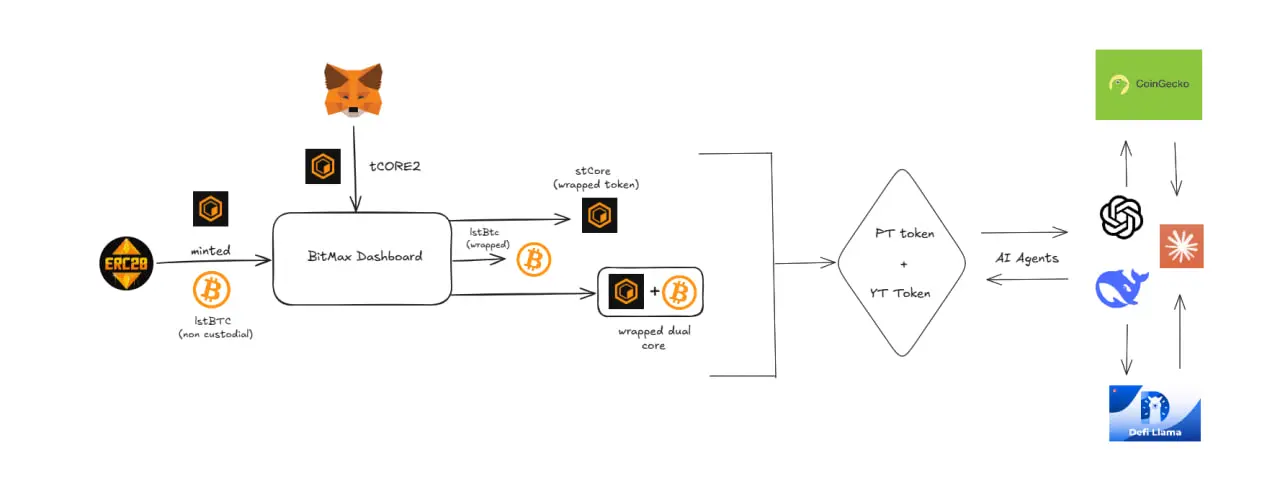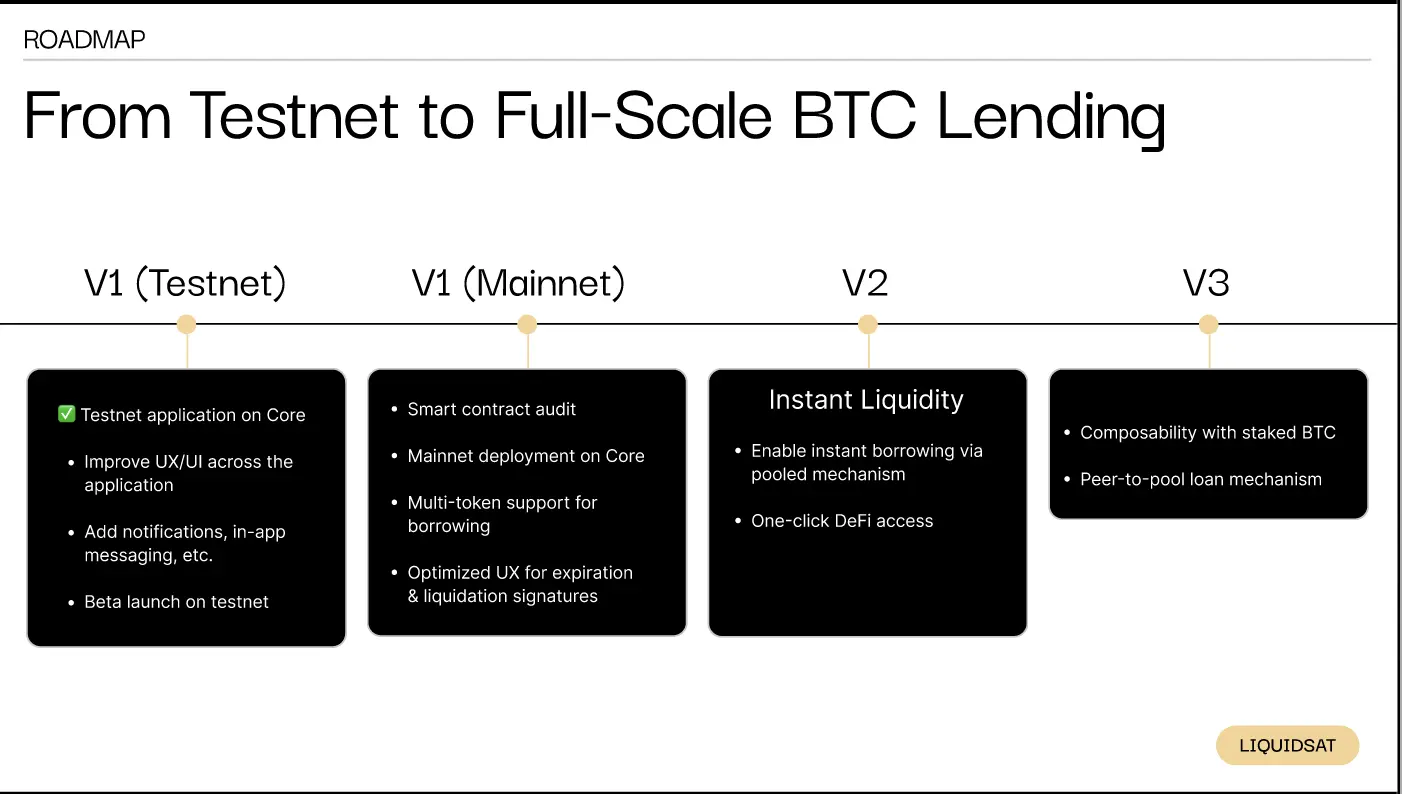Core DAO announced the winners of its Core Connect Global Buildathon on October 8, 2025, highlighting four projects that are advancing Bitcoin DeFi on its Layer 1 blockchain. The event, which attracted more than 200 entries, culminated in four projects sharing top honors after a selection process with 13 semi-finalists and a grand final with five main finalists, along with two wildcard entries.
Each winning team received $10,000 CORE tokens$10,000 in AWS Activate credits, Core Starter Program eligibility, six months of gas discounts on Core mainnet, and technical support from Core DAO’s developer relations and business development teams.
Overview of the Core Connect Global Buildathon
The Core Connect Global Buildathon launched on June 2, 2025, as an online hackathon hosted on DoraHacks, running until August 10, 2025. The event, organized by Core DAO, encouraged developers to build decentralized applications in various categories, including BTCfi, DeFiAI, gaming, Web3 infrastructure and SocialFi. Participants competed for up to $1.2 million in total rewards, including up to $500,000 in funding from Core Ventures, $400,000 in monthly token incentives through the Builders’ Incentive Program and $200,000 in development benefits through the Core Starter Program.
The structure included regional meetings on five continents from June to August 2025, with in-person meetings in locations such as New Delhi, to promote collaboration and networking. The selection of the finalists took place on August 20, 2025, followed by a demo day in the semi-finals in early September. The grand finale took place in October 2025, in line with TOKEN2049 in Singapore, where top teams pitched their projects. Travel grants were provided to the finalists by the blockchain platform. The buildathon focused on projects that increase total value, daily active users, and transaction volume on Core, prioritizing technical integration with Bitcoin’s ecosystem.
Organizers have whittled down the initial group of more than 200 projects to 13 semi-finalists. The top five finalists were Agent Daredevil, BitMax, CorePilot, LiquidSat and OrangeTerminal, with two additional wildcard entries advancing to the finals. The judging criteria focused on innovation, technical feasibility, and alignment with Core’s BTCfi goals, such as enabling Bitcoin-native financial primitives without the need for bridges or wrappers.
A quick look at the winners
Below is a list of the four selected winners, based on the announcement tweet from the Core Builders X account on October 8:
1/4 🥁 Announcement of the winners of the Core Connect Global Buildathon!
What a journey! Of the more than 200 projects, 13 reached the semi-finals, and 5 projects, along with 2 wildcard entries, reached the grand finals.
Meet the winners of the buildathon👇 pic.twitter.com/VrhTTXcBgC
– Core Builders (@corechain_devs) October 8, 2025
BitMax: AI integration for Bitcoin DeFi strategies
BitMax emerged as one of the winners with its AI-powered DeFi ecosystem, tailor-made for Bitcoin and Core assets on the Core blockchain. The project integrates artificial intelligence to optimize DeFi strategies, including staking and liquidity management. Specifically, BitMax uses AI algorithms, such as Long Short-Term Memory models for return forecasting, Proximal Policy Optimization for strategic decisions, and the Kelly Criterion for risk assessment, to maximize returns while mitigating the risks of market volatility. It tokenizes the returns generated from staked assets, separating positions into Principal Tokens for redeeming the original amount at maturity and Yield Tokens for capturing future returns, allowing users to trade or leverage them within the Core ecosystem.

How BitMax Works | DoraHacks
Technical details include AI-driven analysis for strategy selection, where machine learning models assess historical rates of return, staking trends, market volatility, and real-time data on liquidity pools and staking opportunities. This approach enables automated adjustments to positions, such as dynamic betting ratios and liquidity allocation, reducing the need for manual intervention.
BitMax operates without centralized custodians and relies on Core smart contracts for execution, with contracts deployed on the Core testnet. The frontend uses ReactJS, the backend uses FastAPI and the system includes an Automated Market Maker for trading tokenized yields. The project’s focus aligns with Core’s emphasis on BTCfi, where Bitcoin holders can participate in DeFi without leaving the Bitcoin network.
A implemented application is available, with code repositories on GitHub at https://github.com/karar189/BitMax-Staking-App/tree/fix/contracts And https://github.com/sceptejas/BitMaxFinal.
CorePilot: automated betting optimization on Core
CorePilot won because of its smart staking layer on the Core blockchain, which automates the selection of validators and introduces liquid staking. The protocol uses algorithms to identify underutilized validators with the highest annual percentage rates, based on variations in BTC stakes, CORE, and hashing power under Core’s Satoshi Plus consensus. This automation streamlines the staking process, allowing users to delegate assets without manually investigating validators, while improving network decentralization and reducing risks such as stake concentration.
A key feature is liquid staking, where staked assets are given a liquid representation in the form of pCORE tokens that track positions, deliver optimized rewards, and remain usable in other DeFi applications while earning staking rewards. This prevents capital tying up, a common problem with traditional staking. CorePilot integrates directly with Core’s consensus mechanism, ensuring compatibility with Bitcoin stakes yields, and provides an API for third-party projects to integrate its optimization logic, such as in yield aggregators or vault strategies.
The protocol is live on the Core mainnet and interested users can too visit the website to learn more.
LiquidSat: reliable BTC loans without custody
LiquidSat secured a place in the winners list with its self-custodial BTC lending protocol on Core, which allows users to borrow stablecoins against Bitcoin collateral without transferring custody of assets. The system facilitates direct BTC-backed lending, where borrowers receive stablecoins while maintaining control of their Bitcoin. Security is handled via Bitcoin Script contracts, which reliably enforce loan terms, eliminating the need for bridges or asset wrappers that introduce additional risks.
In operation, LiquidSat uses Bitcoin’s scripting language to create conditional transactions that only release collateral upon default or repayment. This method leverages Core’s interoperability with Bitcoin, enabling seamless integration of BTC as collateral into EVM-based DeFi. Overall, the protocol addresses a core challenge in BTCfi: enabling lending without compromising Bitcoin’s self-custody principle. Consult the project Pitch Deck for more information, including the roadmap for future development.

LiquidSat route map at a glance | Pitch Deck
Orange Terminal: AI Assistant for Bitcoin DeFi Tasks
OrangeTerminal was recognized for its AI-powered co-pilot designed for Bitcoin DeFi on Core. It functions as an AI assistant with a chat-based interface and simplifies user interactions with DeFi protocols, handling tasks such as trade execution, portfolio monitoring and strategy recommendations through real-time data aggregation for staking, dual staking, lending, borrowing and liquidity pools. Developer Shantanu Sakpal describes it as an all-in-one application for all Bitcoin DeFi needs, integrating natural language processing to interpret user queries and perform actions on Core.
The tool uses AI to streamline complex operations such as optimizing returns or managing liquidity, making DeFi accessible to non-technical users. It includes features such as APY comparison between different protocols, support for BTC and CORE staking, finding lending and borrowing opportunities, and one-click trades via smart contract calls.
The tech stack includes Next.js 15 with Vercel AI SDK for the frontend, serverless functions for the backend, data from Core staking APIs and protocols like Colend, and a refined GPT model for DeFi context. The protocol website provides more details on its integration.
Conclusion
The Core Connect Global Buildathon demonstrates Core DAO’s commitment to expanding Bitcoin’s role in DeFi through targeted developer incentives and technical support. The four winners each cover specific aspects of BTCfi, from AI optimization and automated staking to reliable lending and user-friendly interfaces. These projects leverage Core’s EVM compatibility and Bitcoin integration to deliver functional tools that improve return generation and asset utility.
As Core continues to expand its ecosystem, these protocols provide practical examples of how developers can leverage the network’s features for real-world applications. Readers interested in BTCfi should keep an eye on these projects for mainnet implementations and further updates.
Sources:
- Core Builders on X: https://x.com/corechain_devs/status/1975939827788132799
- Core DAO blog: https://coredao.org/blog/introducing-core-connect-global-buildathon
- DoraHacks Hackathon page: https://dorahacks.io/hackathon/core-connect-global-buildathon/detail


